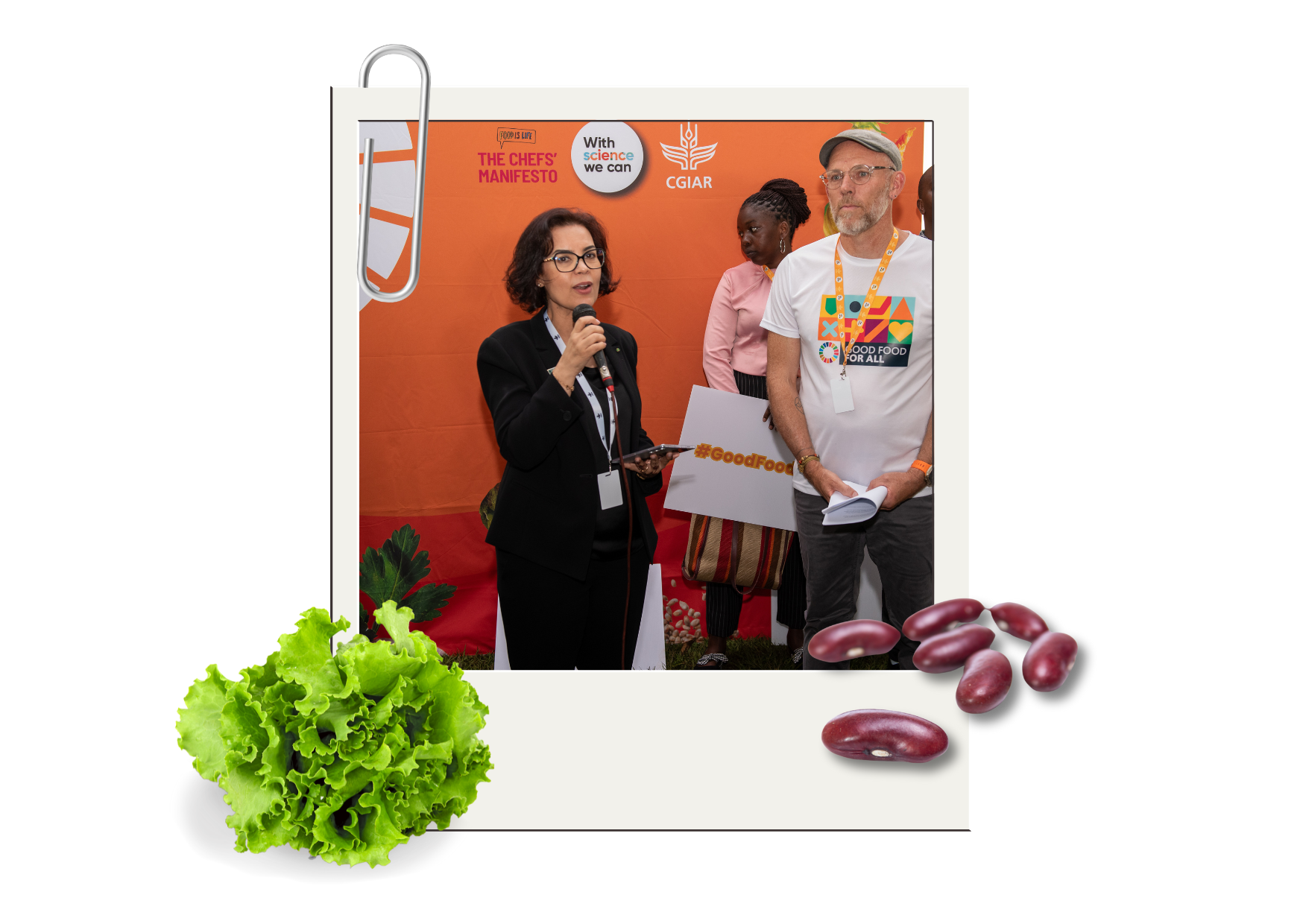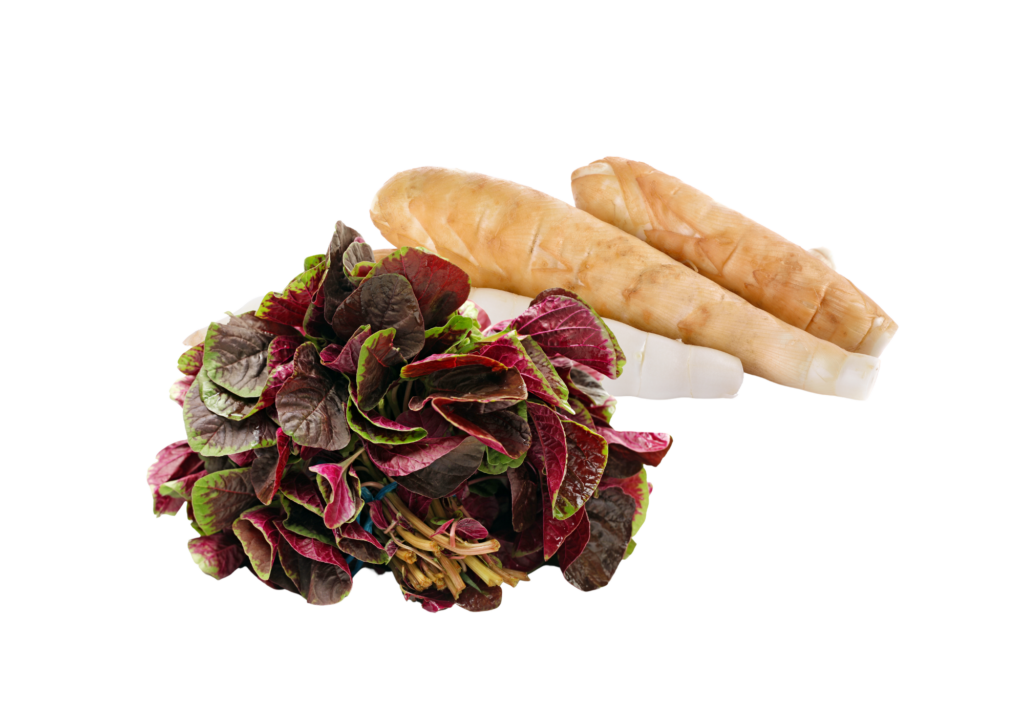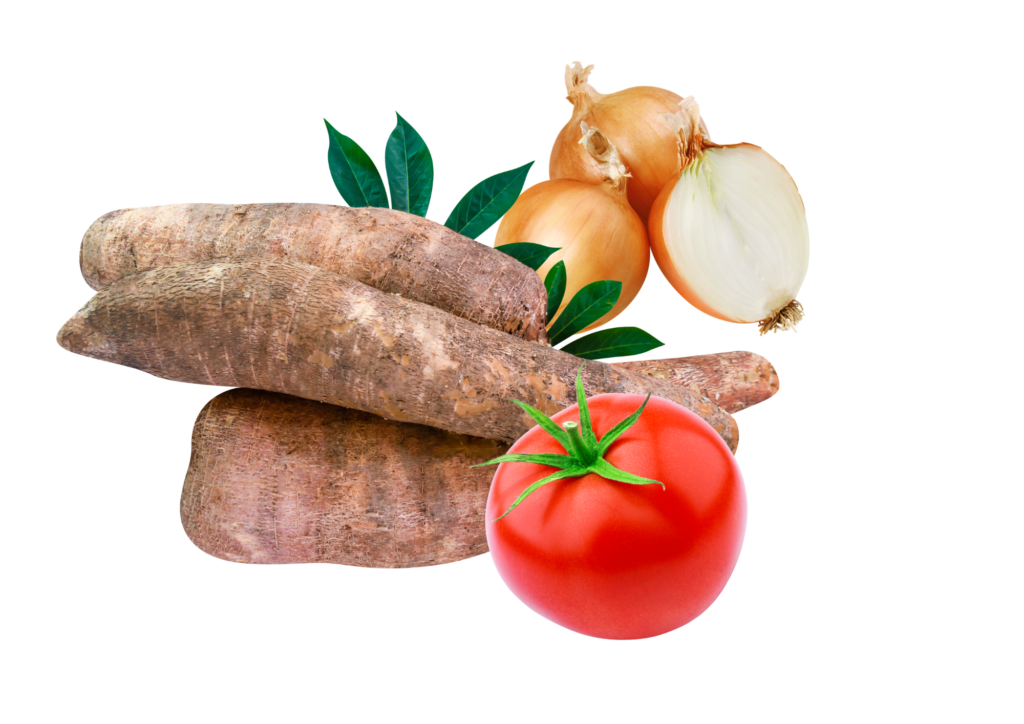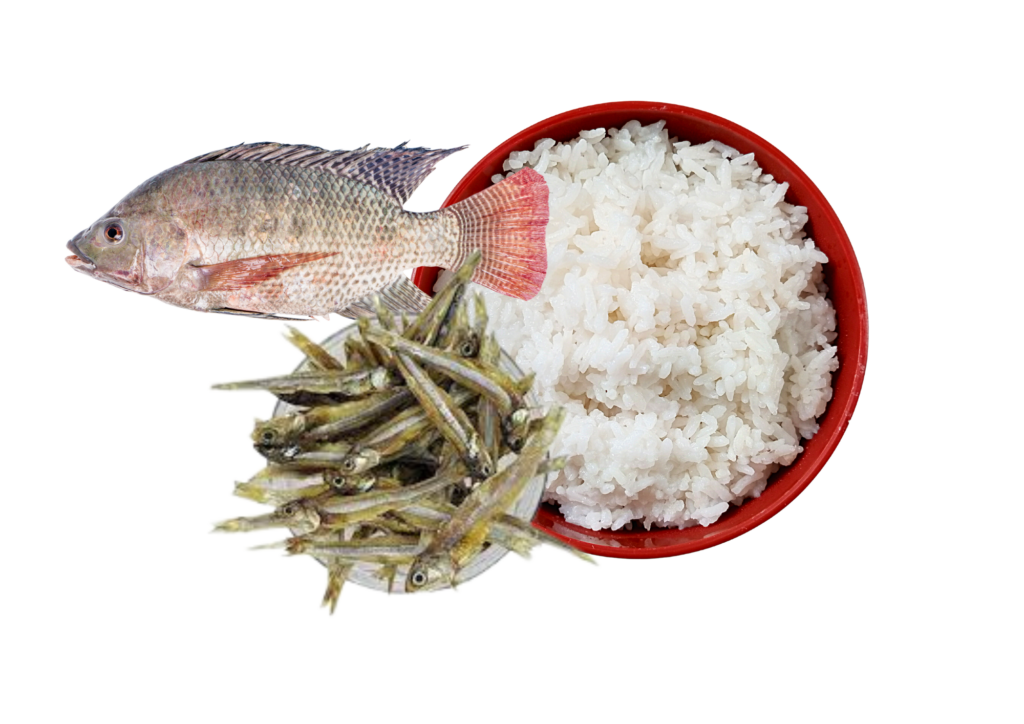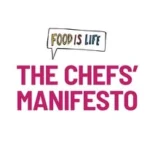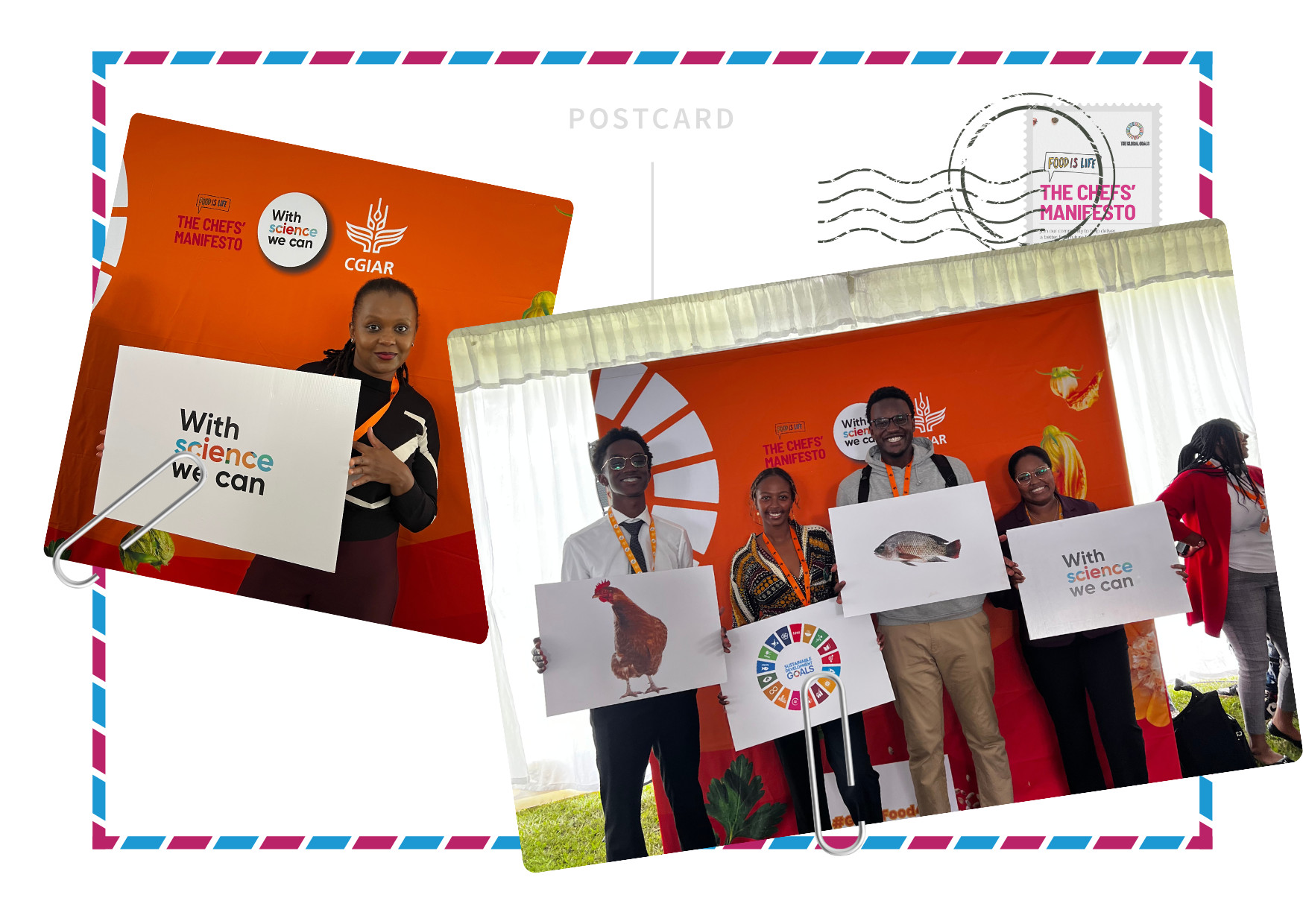
Have you ever seen a scientist pause mid-bite, eyes wide, not at a data set, but at a perfectly plated dish inspired by their own research? At CGIAR Science Week, that moment of wonder played out again and again as researchers, stakeholders, policymakers, experts, innovators, and farmers prefaced a week of high-level discussions on agricultural innovation and the need for policy reform with a literal taste of solutions on the table.
With one-third of the world’s population still food insecure, and less than five years remaining to achieve the 2030 United Nations Sustainable Development Goal 2, the message from CGIAR Science Week was loud and clear: science must be at the heart of accelerating urgent, scalable food solutions. But science doesn’t exist in a vacuum—its impact is fully realised when translated into collective action, flavour, and nourishment. And chefs know this better than most.
In a powerful demonstration of how culinary creativity and agricultural research can work hand in hand, the Chefs’ Manifesto hosted the opening lunch during CGIAR Science Week, connecting science with food culture and highlighting the unique flavours of even the most humble ingredients, like Kenya’s local omena fish.
Partnering with CGIAR and its global network of 12 research centers, the menu brought their work to life on the plate. Local chef, sustainable food systems advocate and Chefs’ Manifesto food champion Kiran Jethwa, together with his team, served delegates a meal that was nutritious, delicious, climate-conscious, culturally-grounded, and deeply meaningful.
For many delegates, this was an edible expression of the week’s overarching theme of innovation and partnerships for a food, nutrition, and climate secure future, and a tangible example of how collaboration between food systems actors is essential to drive Good Food for All.



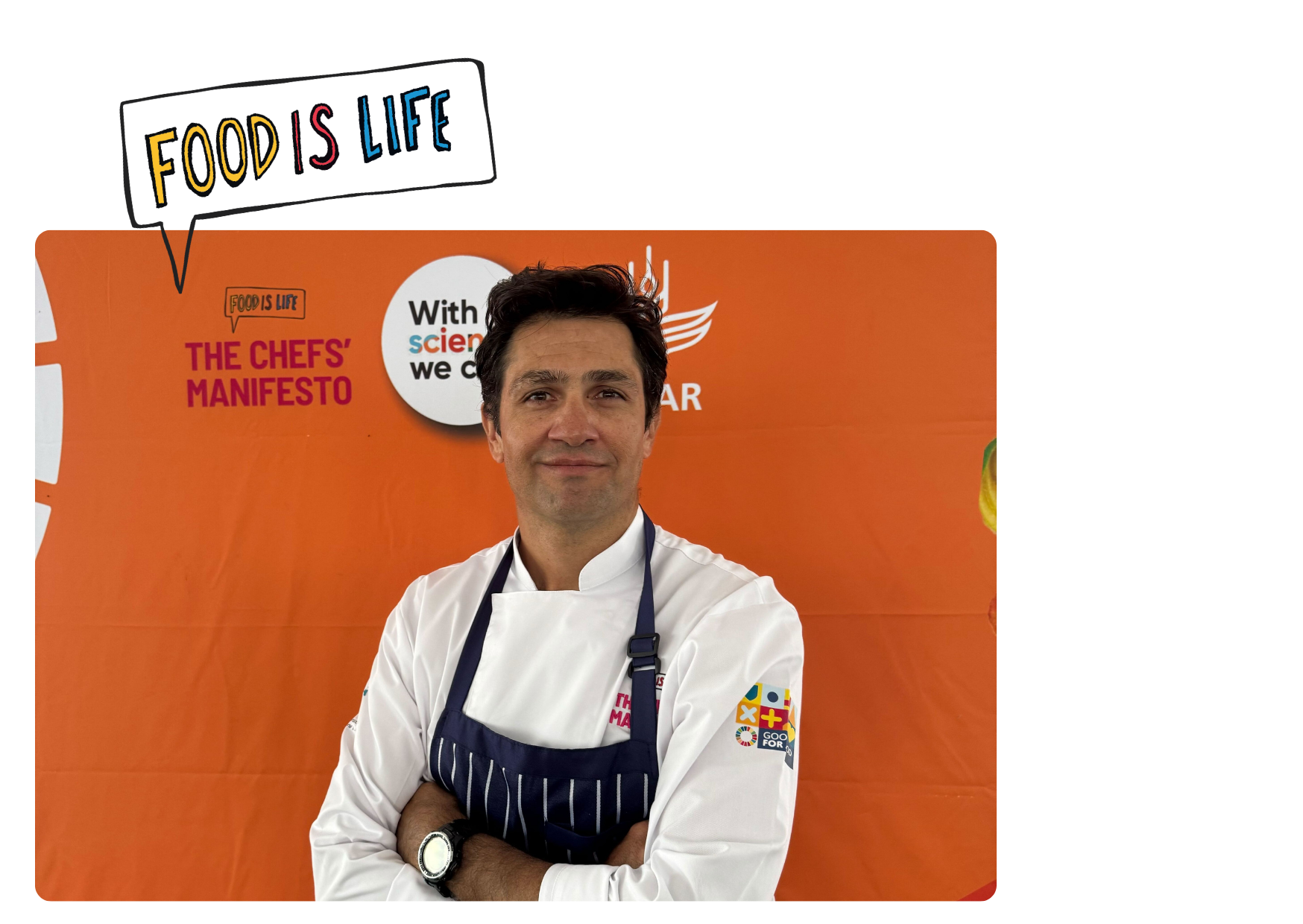
Science must meet the Chef’s knife
The chefs’ knife has the power to transform crops into ingredients, and products into culture. From torque to tongs, chefs wield tools of transformation to translate abstract and technical information into something we can taste, chew, savour, and remember.
For Chef Kiran Jethwa, the intersection of research and cuisine is an important part of a chefs’ role between farm and fork, one that provides a link between relationships with researchers, farmers and food producers, consumers, and communities. “The goal of science is to improve lives,” Chef Kiran noted. “It is key to ensure that chefs are empowered with the stories of research coming through as well as the crops, so they can deliver them on the plate and encourage consumers to partake in them.”
For his cardamom fragranced Tilapia Pilau, Chef Kiran showcased the richness of Kenyan culinary heritage through nutritious, locally-sourced ingredients. For most, it was the first time science came garnished with Omena. Dishes like high-iron red kidney bean, Swahili Curry with biofortified Sweet Potatoes and slow-braised Kenyan Kienyeji chicken stew paired traditional flavours with CGIAR centers’ community innovations and celebrated indigenous ingredients like arrowroot and amaranth.
By embodying the Chefs’ Manifesto Thematic Areas, grounded in sustainability, biodiversity, and making diverse diets accessible, chefs like Jethwa become critical translators of scientific development and its real benefits to people and our planet, helping to make agricultural breakthroughs accessible and relatable to the public.
Turning insights into impact
As Science Week closed, the call to action was clear: collaboration, innovation, and investment must continue far beyond the United Nations event halls in Nairobi. The newly launched CGIAR Investment Case outlines a bold path forward—seeking $4 billion from 2025–2027 to unlock agricultural science’s potential to combat climate change, improve nutrition, and transform land and water systems globally.
“Science guided by purpose, and delivered through strong partnerships, has the power to transform,” concluded Ismahane Elouafi, Executive Managing Director of CGIAR.
Going forward, as noted by Eliud Kireger, Director General at KALRO, we must place science where it belongs: in the hands of communities and smallholder farmers, on the menus of chefs, and at the heart of the fight for a world and future of Good Food for All.
“Through frank debate and presentation of pioneering innovation, Science Week highlighted both the successes we can build on, and the gaps that we are now better positioned to address. The conversation doesn’t end here. This is just the beginning.” said Kireger.
The opening lunch of CGIAR Science Week was just one of many courses/menus by chefs to feed an appetite for change. Around the world, members of the Chefs’ Manifesto lead advocacy on promoting Good Food for All. Learn more about their upcoming events and how you can participate here.
